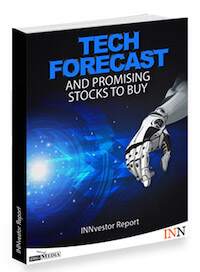The bitcoin versus gold debate continues, but for savvy investors there are opportunities to capitalize off the success of both markets.
The bitcoin versus gold debate is continuing as the cryptocurrency gains steam, but savvy investors are recognizing that there are opportunities to capitalize on both markets.
Both bitcoin and gold have emerged from the market disruption associated with COVID-19 as stores of value with the potential to provide great benefits in investment portfolios.
However, while gold has a long history spanning centuries, bitcoin has been around for just over a decade, leaving some market participants unsure of how to get exposure to this burgeoning market.
Below the Investing News Network presents a list of ways to invest in bitcoin, accompanied where applicable by information on comparable ways to invest in gold. If you’re interested in putting money into both (or simply want to know your options), consider this a starting point.
1. Physical investment
Click here for a breakdown of ways to invest in physical gold.
The most direct way to invest in both gold and bitcoin is to purchase the individual asset. For gold, that may mean buying gold coins from a government mint, or storing bars in a gold storage facility.
Buying bitcoins is a little trickier. Due to a recent price surge that has sent the cryptocurrency up 1,175 percent year-over-year, buying a US$47,000 bitcoin may be too expensive for retail investors.
Those who do want to take the plunge can purchase the digital asset on one of the many bitcoin exchanges or crypto-trading and peer-to-peer trading platforms and apps. Some of these include: Coinbase, Robinhood, Blockfi, Binance and Gemini.
2. Bitcoin-mining stocks
Click the links for the best gold stocks on the TSX and TSXV.
Like gold’s traditional mine supply chain, bitcoin also has a digital mine supply chain.
Using super-powered computers, bitcoin miners work to verify 1 megabyte worth of bitcoin transactions, which results in a mined block. For verifying the block, which involves completing complex mathematical equations and updating the ledger using blockchain, miners are rewarded with bitcoin. This is the only way new bitcoins are entered into circulation, essentially making the miners bitcoin “minters” as well.
The global cryptocurrency-mining market size is forecast to reach US$2.5 billion by 2026, with a compound annual growth rate of 16 percent between 2021 and 2026.
Unsurprisingly, there are a diverse array of bitcoin-mining stocks available for investors on various exchanges — here’s a look at three with year-to-date gains as of March 3, 2021. Data was gathered at that time using TradingView’s stock screener.
A. Riot Blockchain (NASDAQ:RIOT)
Year-to-date move: +200 percent; current share price: US$50.99
Riot Blockchain focuses on bitcoin mining, supporting the bitcoin blockchain by participating in bitcoin’s consensus system through proof-of-work mining, racing to find the next block and building on the chain.
In mid-February, when bitcoin was trending higher, Riot’s share price climbed as high as US$78 before settling back to the US$50 to US$55 range.
B. Canaan (NASDAQ:CAN)
Year-to-date move: +297 percent; current share price: US$23.87
Unlike Riot, which specializes in bitcoin mining, Canaan produces supercomputing technologies and solutions designed to make bitcoin mining faster and more lucrative for miners. As interest in bitcoin grows, so does the number of people wanting to make a foray into bitcoin mining.
Shares of Canaan were up 322 percent in February, trading at US$25.04.
C. HIVE Blockchain Technologies (TSXV:HIVE)
Year-to-date move: +125.9 percent; current share price: C$5.62.
With state-of-the-art, green energy-powered data center facilities in Canada, Sweden and Iceland, HIVE Blockchain Technologies produces newly minted digital currencies like bitcoin and ethereum continuously on the cloud. HIVE reached a year-to-date value high in late February, trading for C$6.81.
3. Funds
Another way to access the US$1 trillion bitcoin market is through investment products.
An investment fund consists of the combined capital of investors and is controlled by a fund manager who is able to make investment decisions on behalf of the collective.
Funds are often limited to accredited investors, but some offerings are open to both retail and accredited investors in different capacities.
A. The Bitcoin Fund (TSX:QBTC)
Year-to-date move: +32.5 percent; current share price: C$69.50
The Bitcoin Fund is operated by 3iQ, a firm that was the first of its kind in Canada to offer accredited investors — high-net-worth investors or individuals achieving a specific income threshold — exposure to the crypto market in 2012. The closed-end fund is designed to invest solely in bitcoin, and launched in April 2020. The Bitcoin Fund currently has a 1.95 percent management fee.
Shares rose to an all-time high of C$69.81 in February 2021.
B. CI Galaxy Bitcoin Fund (TSX:BTCG.UN)
Year-to-date move: +19 percent; current share price: C$27.15
Another new entry to the sector is the CI Galaxy Bitcoin Fund. Controlled by Galaxy Digital, a diversified financial services and investment management company, the CI Galaxy Bitcoin Fund invests directly in bitcoin, but isn’t limited to only accredited investors.
“In launching CI Galaxy Bitcoin Fund, we are offering Canadian investors a simple way to access an important emergent asset class and easily integrate it into their portfolio and investment planning,” Kurt MacAlpine, CEO of CI Financial, wrote in a press release.
The Galaxy Bitcoin Fund has a management fee of 1.8 percent.
4. Trusts
Bitcoin’s 2020 price rally not only set the stage for new investment funds, but was also fruitful ground for trusts and exchange-traded funds (ETFs). So far in 2021, at least one bitcoin trust and two ETFs have been introduced to the marketplace as options for investors.
A bitcoin trust is also known as a closed-end fund that has an annual redemption date, allowing investors to sell units without penalty.
A. Grayscale Bitcoin Trust (OTCQX:GBTC)
Year-to-date move: +45.8 percent; current share price: US$46.60
Introduced to the sector in 2013, the Grayscale Bitcoin Trust has dominated the bitcoin trust space for almost a decade. The publicly traded entity currently offers a 1 to 0.00094695 ratio of shares to bitcoin.
Grayscale Investments’ trust has a 2 percent annual fee. The firm also offers private placements of its bitcoin trust shares periodically throughout the year for accredited investors.
B. Osprey Bitcoin Trust (OTCQX:OBTC)
Year-to-date move: -55.02 percent; current share price US$26.99
The Osprey Bitcoin Trust was established on February 16, 2021. Like Grayscale, Osprey offers limited private placement opportunities for accredited investors, with a minimum investment of US$25,000.
After watching Grayscale oversee the lion’s share of the bitcoin investment trust market for eight years, Osprey’s management team wanted to capitalize on bitcoin’s projected and current growth.
Osprey tracks the CMBI Bitcoin index and charges a 0.49 percent management fee. There are also some additional expenses investors can expect to incur, which include custody, audit, index licensing and legal fees. These excess expenses are forecast to come in near or below 0.3 percent in 2021.
C. Ninepoint Bitcoin Trust (TSX:BITC.UN)
Year-to-date move: +52.6 percent, current share price: C$18.61
Ninepoint Partners’ Bitcoin Trust began trading in both Canadian and US currencies on January 27, 2021, with the goal of offering investors a tool that closely tracks the underlying asset. For Ninepoint, this is best achieved by keeping fees low, company CEO John Wilson told the Investing News Network.
“The fees on those (other trust) offerings are anywhere from 1.75 to 2 percent, and we felt that impairs their ability to properly track the underlying assets,” he said. “So we priced (Ninepoint’s) Bitcoin Trust at 0.7 percent, which is obviously significantly below the next fee structure, over 100 beeps below.”
After launching at C$12.16, shares climbed to a high of C$21.07 in mid-February.
5. Exchange-traded funds
Click here to see a list of some of the most popular gold ETFs.
Growth in the gold ETF sector began to rise in the 2000s, and ETFs have remained a healthy access point to the sector. There are a number of gold ETFs that focus on various aspects of the industry, such as mining, royalties and/or exploration.
In terms of bitcoin investment vehicles, none are newer than the ETFs below, which hit the market in late February 2021. Unlike the diversified ETFs in other sectors, both ETFs invest exclusively in bitcoin.
A. Purpose Bitcoin ETF (TSX:BTCC.B)
Year-to-date move: -5.23 percent; current share price: C$9.56
The world’s first bitcoin ETF entered the TSX on February 18, 2021, just as bitcoin broke the US$50,000 level. The crypto spike pushed shares of the Purpose Bitcoin ETF to a high of C$10.55. Values have subsequently trended lower. Currently, one share of purpose equates to 0.00016538 bitcoin.
The self-described alternative mutual fund charges an annual fee of 1 percent.
B. Bitcoin ETF (TSX:EBIT)
Year-to-date move: -9.1 percent; current share price: C$24.65
Listed on the TSX one day after Purpose, the Bitcoin ETF from Evolve Funds Group boasts an easy way for investors to follow the bitcoin market.
“Evolve’s Bitcoin ETF is a simple and efficient way for investors to gain exposure to Bitcoin within the familiar structure of an ETF,” said Raj Lala, CEO and president. “Investors may buy and sell ETF units through a financial advisor or through their brokerage accounts.”
He went on to note that Canadians can hold the ETF in an RRSP or TFSA.
Companies and firms that own bitcoin on behalf of investors are opting to keep the cyber asset in cold storage, a type of digital storage that is offline preventing cyber attacks and hacking.
Don’t forget to follow us @INN_Technology for real-time news updates!
Securities Disclosure: I, Georgia Williams, hold no direct investment interest in any company mentioned in this article.
Editorial Disclosure: The Investing News Network does not guarantee the accuracy or thoroughness of the information reported in the interviews it conducts. The opinions expressed in these interviews do not reflect the opinions of the Investing News Network and do not constitute investment advice. All readers are encouraged to perform their own due diligence.


